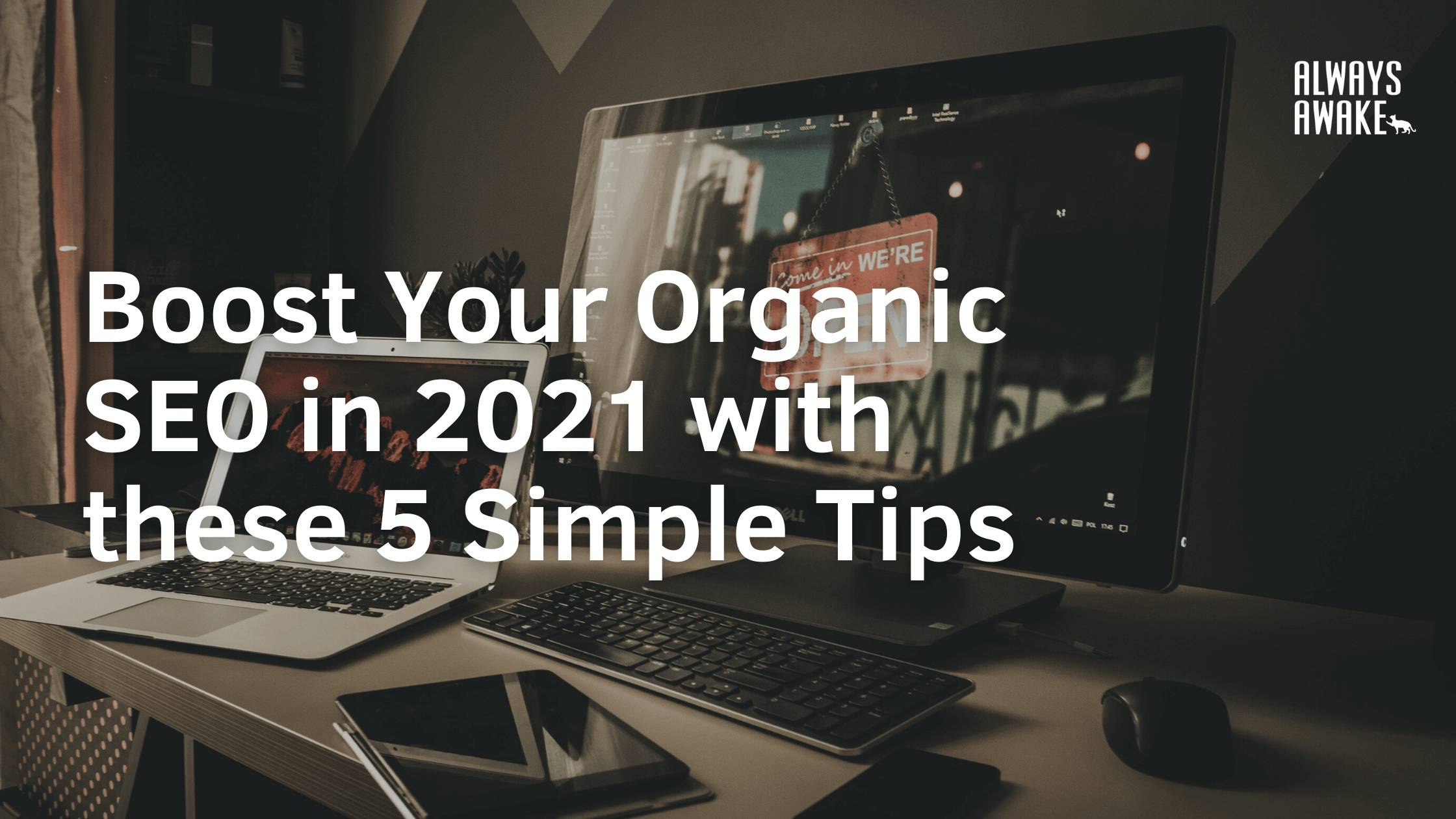
Boost Your Organic SEO in 2021 with these 5 Simple Tips
Search Engine Optimization a.k.a. SEO started in the mid 90s, and until now we still use this process. But how is SEO now in 2021? Has it changed over the years and is it still relevant for you to use in your business online?
What is SEO and Why?
Search Engine Optimization or SEO can be simply described as a practice that increases your website visibility and helps to show your website to people searching for related services or products that you offer. Statistics tells us that there are an estimated 3.5 billion searches on Google daily. It is one of the best ways for drawing in potential customers to your website. But there is a catch, you need to use it in the right way to get the results you want.
Your pages will have better results with better visibility. When your pages have higher visibility, your site is likely to gain more attention and attract the right customers to your business. The drive for organic traffic and the strength of SEO is very clear, because according to a research by BrightEdge, organic search is the largest driver of web traffic. In 2019 it was organic and paid traffic that dominated web traffic. This is still true for 2021 as search engines like Google or Bing still very much value organic searches.
5 Simple Tips to Boost Your Organic SEO
You have to implement good SEO practices when your goal is to drive organic traffic to your business website. The better you practice SEO, the higher your site can rank on the search engines’ results page. The closer your site gets to the top of page one, the more eyeballs it can reach, and more people will get to know your product, service and/or blog. Here are 5 tips we would like to share that will help improve the SEO on your website.
- Optimize your images with alt tags. Use high quality images on your website whenever possible (without slowing down the page load speed). Doing so not only enhances the user experience, but search engines like Google do take images into consideration during indexing. So you need to make sure that google can find your photos using keywords in the titles. Change standard file names or alt names like “IMG00001” into something meaningful, because your image will likely rank higher if you name your images with keyword-rich titles like “womens-purple-dress”.
- Avoid duplicate content. Make sure to check every URL in your site has a unique content because you’ll be punished if the same content is utilized more than once. For example, do not be lazy and recycle the same product description on the pages for “men’s shoes”, “men’s footwear”, or “men’s red shoes”. Use of description wisely.
- Strategically use categories. Like labels or tags, categories help organize related posts. Providing information to readers about your articles’ genre or topic makes it easy for them to search for similar and relevant content. Tags are optional, but you can still make use of them where relevant, such as sub-categorize the topics according to how you deem fit.
- Make effective permalinks. Keep your slugs short within five words, and use hyphenation instead of underscore to separate the words. This way it helps to avoid confusing Google’s bots and reducing your site’s PageRank, since Google views underscore as an extension of the word.
- Stop keyword stuffing. Reaching for the top of the organic search result pages won’t happen if your keywords don’t fit within the context of your website content. Cluttering information such as awkward, irrelevant phrases, geographic information or phone numbers that don’t add value to your posts, do not help at all. You can use keyword generator tools or trends to help you understand and also generate relevant keywords from your own data.
- Optimize your images with alt tags. Use high quality images on your website whenever possible (without slowing down the page load speed). Doing so not only enhances the user experience, but search engines like Google do take images into consideration during indexing. So you need to make sure that google can find your photos using keywords in the titles. Change standard file names or alt names like “IMG00001” into something meaningful, because your image will likely rank higher if you name your images with keyword-rich titles like “womens-purple-dress”.
With the above tips, it can help your website to generate the much-needed traffic needed to be ranked on the first page of Search Engines. Happy optimizing your SEO!

